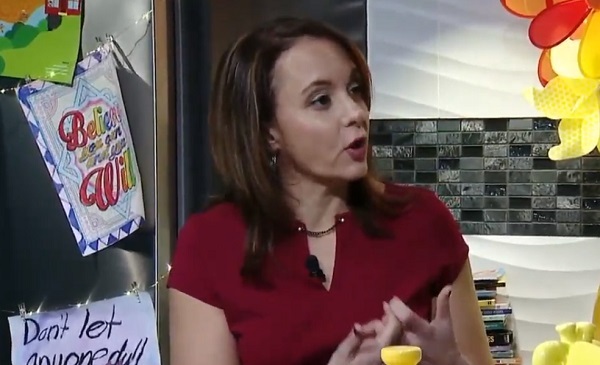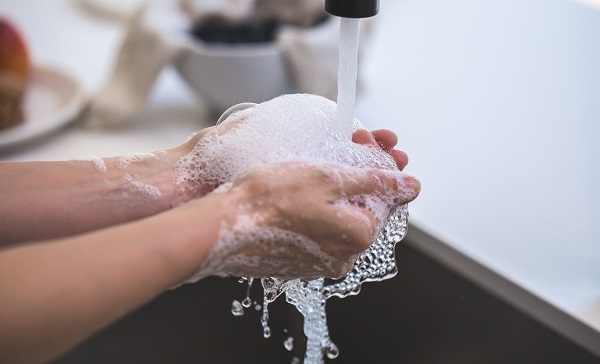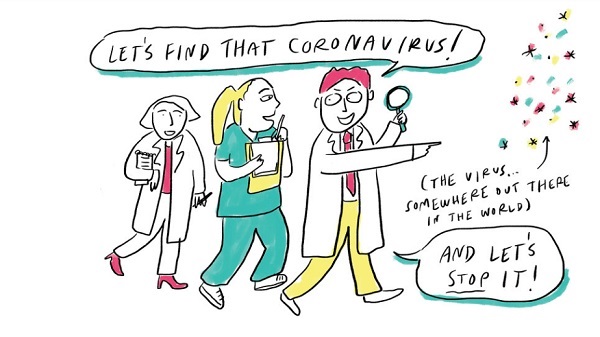
Are your kids anxious about coronavirus? Dr. G is here to help
This story was first published on March 9.
It’s easy to feel like hibernation is the best option with headlines of the coronavirus inundating our newsfeeds. As COVID-19 cases continue to climb, it’s challenging not to feel steeped in anxiety about the unknown. For kids, the situation can be more frightening as schoolyard chatter raises all sorts of misinformation.
As parents, how do you take the necessary steps to educate kids about this health crisis?
We spoke with Pittsburgh family physician and parenting expert, Dr. Deborah Gilboa, also known as Dr. G, about the coronavirus pandemic, how best to address it with your kids, and the steps you can take to reduce its spread. Here’s her take:
1. Meet kids at their level.
Dr. G cautions against starting a conversation too advanced or too basic for your child, “You lose your audience if you don’t start where they are,” she says. Instead, begin by asking what your child has heard and believes.
From there, take in the information they’ve shared, enter the conversation at a place that’s comfortable to your child, and find opportunities to correct misinformation. It’s OK if you don’t know all the answers. Use that opening as an opportunity to do research together. This cool animated video on BrainPOP is a great place to start.
If you’re feeling anxious about the subject yourself, Dr. G says, process the information you’ve learned with another adult before speaking with your child. That way, your child doesn’t bear the full brunt of your initial emotions.
2. Keep the information simple and straightforward.
After understanding the level of your child’s knowledge, start simple. With younger kids, it’s good to give them a point of reference. Dr. G suggests saying something like: “Every so often something like this happens. There are new germs that sometimes spread and get people sick, just like germs that cause a cold or the flu.” Remind them that there are a few things we can do to help keep themselves and their families healthy and safe.
3. Stopping germs with a song.
Of course, we all know one of the most significant recommendations is the importance of washing hands, doubling the usual effort.
Dr. G recommends framing hand washing to kids as a way to keep people they care about safe, versus doing so for their own health. Tell them, for example, “we wash our hands to help do our part in protecting the people we see at school or at church, etc., from germs.”
She suggests finding a song kids can sing that is at least 20 seconds long while they wash their hands with warm, soapy water. (Be sure to include thumbs, wrists and in between fingers.) “Happy Birthday” is the usual suggestion, but popular songs like “Baby Shark” might be more fun and less tedious. Have your kids suggest songs they like and set the timer to see how many verses they should include.
Other behaviors to emphasize with kids:
- Listen to your body and speak up if you don’t feel well.
- Use your elbow to cover your mouth when you sneeze or cough, then wash your hands.
- Do your best to not touch your eyes, nose, mouth or face. We know this is a hard one – for grownups, too. Encourage kids by modeling this healthy behavior to keep hands away from the face. Click here for some tips for encouraging kids not to touch their faces.
4. Some good news to ease fears.
Reassure your kids that, as Dr. G points out, most children are not part of the vulnerable population mentioned for COVID-19. Kids are remarkably resilient and built to manage germs, she says. In their early years, as they grow, their bodies are being introduced to new germs all the time, and their immune systems are prepared to handle unexpected illnesses and germs.
5. But be prepared.
While the flu vaccine does not prevent the coronavirus, it’s essential to make sure all your kids’ immunizations are up to date to avoid any other illnesses that might lower immune systems. Ensure basic cold medicines and supplies, such as thermometers, are stocked in your home. Be proactive and work with your employer to arrange the flexibility to work from home should you or your child get ill and need to stay home.
It’s important to note that a lot is still unclear about the virus. Many cases have gone unreported due to mild symptoms or people who are asymptomatic.
The best way to be prepared is to continue to educate yourself using credible resources, such as the CDC. You can stay up to date with information and guidance on COVID-19, here.
6. Additional resources for families:
NPR published a helpful comic book for kids to understand the new coronavirus. The comic can be read online here or printed out and folded into a zine form.
Can’t find hand sanitizer in stock? It’s easy to make your own with aloe vera gel and 99-percent isopropyl alcohol, both of which can be bought at pharmacies and discount stores. Use 2/3 cup of the rubbing alcohol mixed with 1/3 cup aloe gel. For an enhanced scent, you can add a few drops of lavender essential oil.
Click here are more tips from the Center for Disease Control and Prevention.

